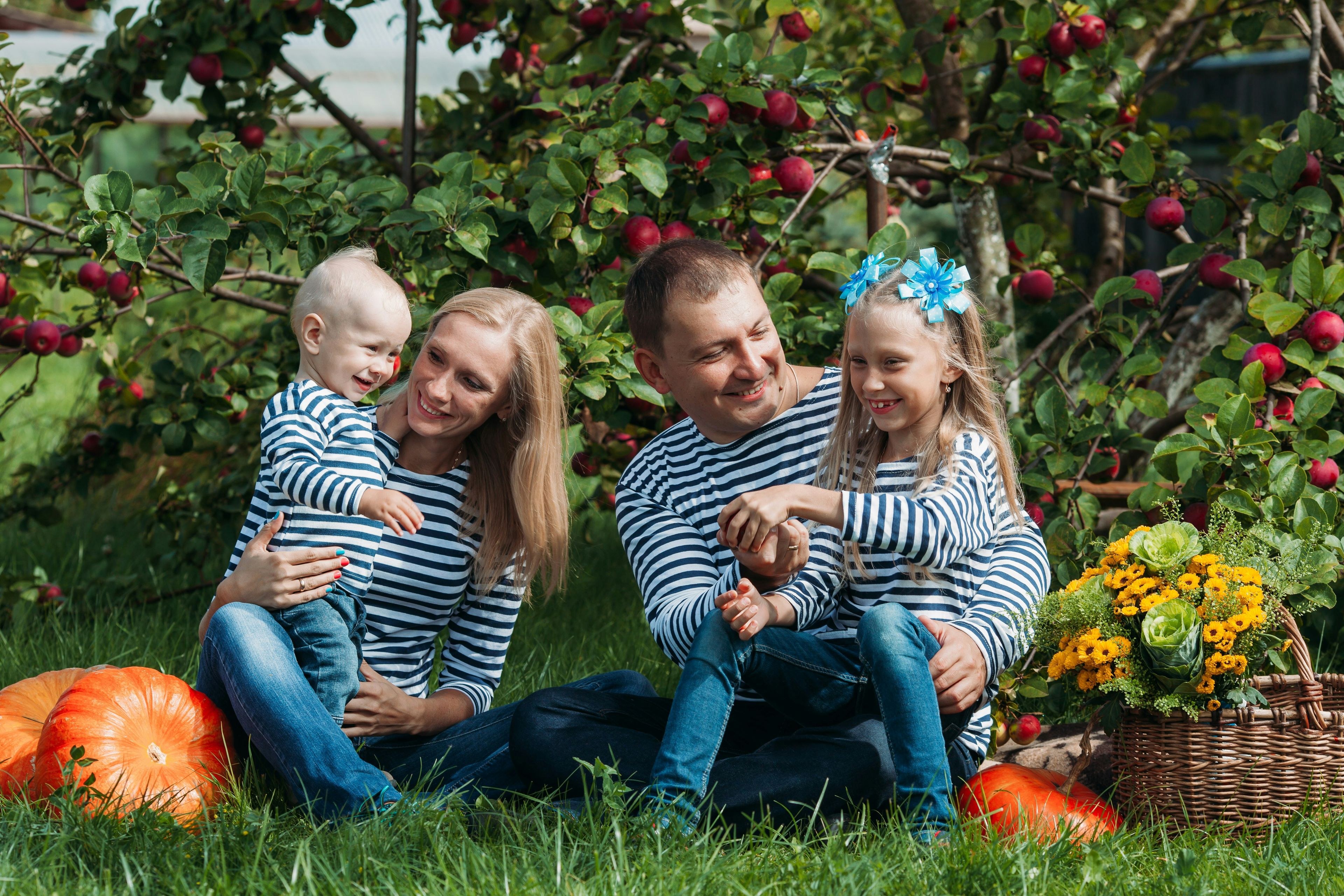Can A Family Be Too Close?: 10 Signs Your Grew Up In An Enmeshed Family
Are you enmeshed or just close? Whitney walks you through 10 signs or symptoms of intense family enmeshment.

“My mother will not stop calling me to vent about my dad,” Andrea tells me as I watch her on my screen.
Growing up, her mother told her everything. There were no limits to the disclosure - sex, marital problems, family drama, and money issues were all fair game. Her mother celebrated the dependency and constantly praised her “mini therapist.” She hated seeing her mother upset, so she comforted her when she cried. She knew her mother had no one else to talk to, so she listened when she needed to vent. She knew her mother was working two jobs, so she took on the stress of worrying about finances. She knew her parents were having marital issues, so she tried to fill that void.
There is no distinction between where her mother ends and where she begins. She absorbs her fears, hopes, dreams, and failures. If she tries to distance herself from her mother, she’ll be rejected, so she keeps her close instead.
“If I try to set a boundary with her, she won’t speak to me for a week. The last time I told her I had plans with my friends, she accused me of not caring about her and ghosted me. I had to show up at her house to make sure she was ok” she tells me.
Andrea thought they had a close relationship until she started reading about enmeshment.

Are You Enmeshed Or Just Close?
Enmeshment happens when two or more people, typically family members, are excessively involved in each other’s activities and personal relationships, thus limiting or precluding healthy interaction and compromising individual autonomy and identity. (APA Dictionary of Psychology)
Enmeshment is highly nuanced and culturally dependent. What may be considered enmeshed in one family may be healthy in another. Enmeshment is really not about what the family does; it’s about the impact that behavior has on the members.
I will walk you through 10 signs or symptoms of intense family enmeshment. As you read this, I want you to evaluate it through your lens. Ask yourself, is this a problem for me and my family? There is evidence that enmeshment has more of a negative impact on “typical” American families when compared to other cultures or family types. For example:
- Altiere and von Kluge (2009) found that enmeshed patterns of family functioning were associated with greater use of healthy coping mechanisms in families of children with Autism Spectrum Disorder —the opposite of what is typically prescribed. Children with ASD and their families may benefit from parents providing a level of support and guidance that would be “too much” for neurotypical families.
- A study shows that enmeshed family relationships benefit child socio-emotional functioning among Korean immigrant families in the United States.
- Even helicopter parenting can be perceived as appropriate and positive when there is warmth coming from the parent.
10 Signs You Grew Up In An Enmeshed Family
1. Members of the family cannot think about what they need or want.
It is healthy to consider the family's needs and wants. Families thrive when individuals can consider how their actions will impact the family. Collectivist cultures prioritize overall family wellness, connection, and consideration of one another.
Enmeshment can happen when family members do not have any identity outside the family. Each family member is their own unique person, and we have to strike that delicate balance between the individual and family. Examples of this may include not knowing who you are outside of the family, not being sure of your interests or dislikes outside of your family, and everyone in the family sharing the same opinion on everything.
2. Your family had no boundaries between parents and children (or generations).
It is healthy for parents and children to be close and share. Studies show that parental involvement is highly nuanced and depends on the child's development, health status, age, personality, and temperament.
Enmeshment can happen when parents share excessive information with children that is inappropriate for their age or development. When parents share about intense stressors, marital issues, sex, or other age-inappropriate topics, the child can become emotionally enmeshed and overly involved in the adult’s life. When this happens, children miss out on vital developmental tasks and milestones because they’re too busy caring for the adults.
3. Your parent was overly involved in your life.
It is healthy for a parent to be involved in their child’s life and provide guidance. Research shows that the appropriate level of involvement may depend on the child’s development, culture, and perception of the parent’s level of involvement.
Enmeshment can happen when parents do not give their children any privacy, tell them what to think and feel, and do not allow them to become their own person. Examples may include telling the child what they must believe, discouraging or punishing self-exploration, and excessive checking-in or surveillance.
4. There were intrusive and overwhelming demands put on you.
It is healthy for all members to participate in the family. Family members can expect help and support from one another.
Enmeshment can happen when the family is expected to fulfill every role for the other family members. Children cannot be therapists, friends, advisors, or partners for their parents.
5. You were not allowed to be yourself.
It is healthy for family members to provide guidelines and values for living. Parents naturally instill their values, interests, and dislikes in their children.
Enmeshment can happen when children are shamed, ridiculed, or exiled for being different from the family.
6. No one understood their role, and there were inappropriate roles.
It is healthy for family members to alternate giving one another support. Family relationships will not be 50/50 all the time.
Enmeshment can happen when family members (like children) are expected to fill roles they cannot. If parents act like children and children have to take on the role of parent, this is confusing. Children in enmeshed families may also be put into the role of partner or friend of their parent and then be expected to be subservient to their parent the next day.
7. Family members absorb each other’s emotions to a degree that makes it hard to function. Their emotions are dictated by the emotions of the family.
It is healthy to be impacted by your family member’s emotions and to be empathetic in their moments of struggle.
Enmeshment can happen when people feel completely absorbed by another family member’s struggle. When family members cannot maintain their autonomy when another member is struggling or upset, it is difficult to offer support, live daily life, or maintain independence.
8. Intense fear of conflict or abandonment from the family.
It is healthy to feel a responsibility towards your family and to want to feel included by them.
Enmeshment can happen when a member has to hide who they truly are to be accepted by the family. It’s not sustainable to fear conflict or abandonment within your own family.
9. Family members could not set boundaries with one another.
Having flexible and evolving boundaries with other adult family members is healthy. Families are likely to have looser boundaries with one another than in different relationships, which can be productive.
Enmeshment can happen when family members do not have any physical or emotional boundaries with one another. This can be particularly risky when no boundaries exist between adults and children.
10. Family members cannot tolerate people having different opinions.
It is healthy for family members to share opinions about specific topics. Families may find closeness through their shared beliefs and opinions.
Enmeshment can happen when family members are expected to have the same opinions, and any dissent is rejected. Enmeshed family members typically feel they have to silence or conceal their beliefs to be accepted.